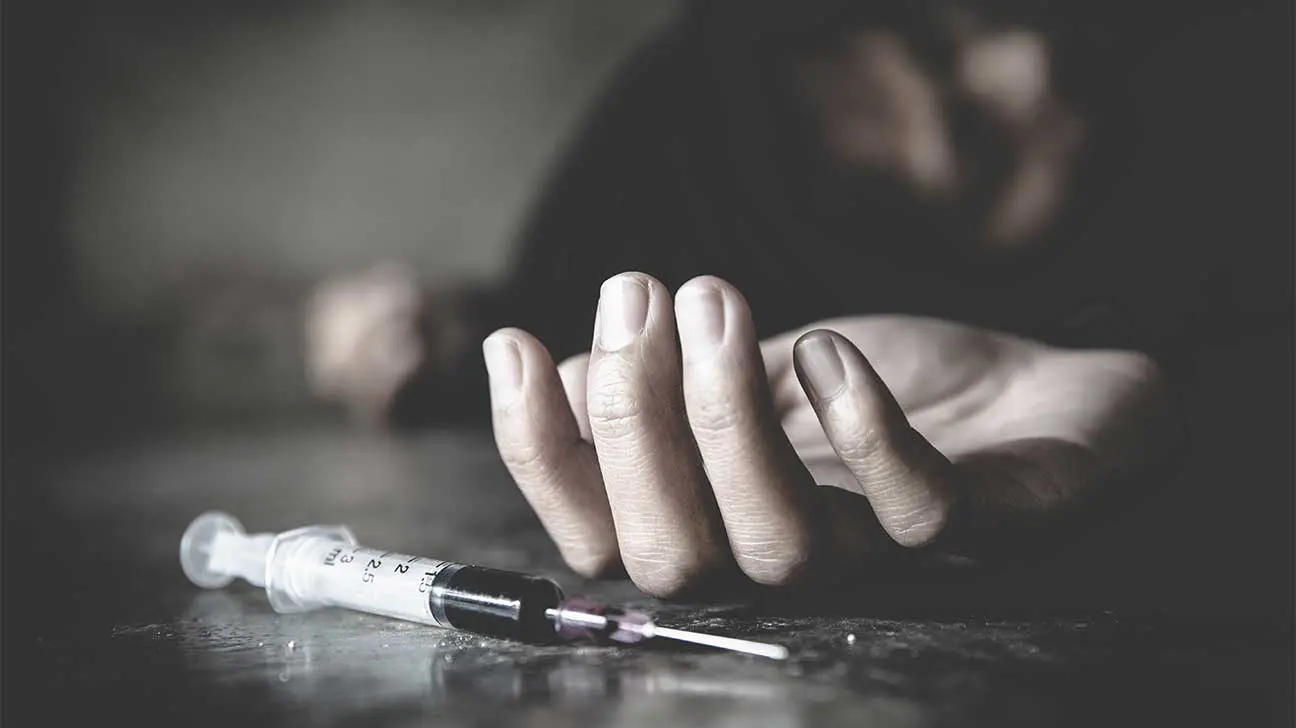
Heroin overdoses can be fatal, but they are treatable if caught in time. If you or someone you know has overdosed on heroin, administer naloxone and call 911 immediately.
A life-threatening overdose on heroin is more likely if the drug is mixed with depressants such as alcohol, sleeping aids, and benzodiazepines because these suppress vital bodily functions.
How Heroin Overdose Treatment Works
There are heroin overdose reversal medications that reverse and block the effects of heroin, such as naloxone.
The biggest concern in the case of a heroin overdose is respiratory depression. Administering naloxone will restore normal breathing.
It works by acting as an opioid antagonist. It attaches itself to opioid receptors, reversing and blocking the effects of other opioids.
Heroin Overdose Reversal Medications
Naloxone, the only opioid overdose reversal drug, is available in two forms:
- nasal spray (Narcan)
- injection (Evzio)
In 2014, the U.S. Food & Drug Administration (FDA) approved the hand-held auto-injector called Evzio, which injects a single dose of naloxone into the muscle or under the skin.
Then in 2015, the FDA approved Narcan, a nasal spray to be administered directly into one nostril.
Note: Naloxone is meant to be a temporary aid in an emergency situation. Call 911 right away after administering naloxone and seek further medical attention.
Benefits Of Heroin Overdose Treatment
Heroin overdose medications such as Narcan and Evzio are helpful tools for emergency treatment.
This is not a replacement for proper medical care, however. It will temporarily block and reverse the effects of heroin, but it will not cure the problem.
Using naloxone should always be followed up by calling 911 or going to the emergency room.
Is Naloxone Safe To Use For Treating A Heroin Overdose?
It’s completely safe to use. Research has found no indication that naloxone produces any significant adverse reactions or risks.
There may be withdrawal symptoms after using naloxone for someone who is opioid dependent, but the risk of experiencing a fatal overdose without quick overdose treatment is much higher.
Who Can Administer Naloxone For Treating Heroin Overdose?
Anyone can administer naloxone in the case of an emergency. It is meant to be accessible to anyone who needs it.
There are naloxone distribution programs that give naloxone kits to those who use opioids, their friends and families, and anyone else who may be able to save someone at risk of an overdose.
These distribution programs have seen notable success:
- In Massachusetts, it reduced opioid deaths by 11%.
- Having access to naloxone reduced opioid overdose deaths by 14% nationwide.
If you or someone you love have abused heroin, having naloxone on hand can be life-saving in the event of an overdose.
Check into a naloxone distribution program near you to equip yourself with the reversal medication.
Follow-Up To Heroin Overdose Treatment: Heroin Treatment Medications
An overdose on heroin is usually a sign of drug addiction and points to the need for a comprehensive treatment program.
Medication-assisted treatment programs, which combine medications, therapy, and other treatment methods, are the most proven effective treatment plans for addictions to opioids like heroin.
Medications used in the treatment of heroin addiction include Vivitrol, Suboxone, and methadone.
These medications are administered orally or intravenously on a daily or monthly schedule. They work to block the effects of opioids and treat the painful symptoms of withdrawal safely.
Recovery Options For Heroin Addiction
Recovery is available in a range of addiction treatment options.
For long-term addiction recovery, it’s important to participate in some form of treatment program to have the best chance at sustained recovery.
Here are a few options for those recovering from heroin addiction:
- Inpatient rehab: With an inpatient program, recovering individuals can expect to live in a treatment facility for 30 to 60 days, or more depending on the program selected. This is a full-time treatment option.
- Medication-assisted treatment: In this program, recovering individuals will receive regular doses of medication and receive psychosocial support through group therapy, family therapy, vocational services, and more.
- Medical detox: Usually a 24-hour treatment option, this might involve staying in a hospital or treatment facility for a limited number of days for the body to detox.
- Outpatient rehab: A person in recovery will be able to live at home throughout the duration of treatment. They might participate in programs like standard outpatient, intensive outpatient, partial hospitalization, or aftercare.
Find Treatment For Heroin Addiction
Though the stress of experiencing an overdose and addiction to heroin can feel overwhelming, it doesn’t have to continue.
We’re here to help. If you or a loved one are ready to take a step toward healing from heroin addiction, just call our helpline.
We have specialists who can point you toward a number of resources, treatment centers, and recovery options that work. Call us today to get started.
Addiction Resource aims to provide only the most current, accurate information in regards to addiction and addiction treatment, which means we only reference the most credible sources available.
These include peer-reviewed journals, government entities and academic institutions, and leaders in addiction healthcare and advocacy. Learn more about how we safeguard our content by viewing our editorial policy.
- National Institute on Drug Abuse (NIDA) — Naloxone for Opioid Overdose: Life-Saving Science
https://www.drugabuse.gov/publications/naloxone-opioid-overdose-life-saving-science - National Institute on Drug Abuse (NIDA) — What can be done for a heroin overdose?
https://www.drugabuse.gov/publications/research-reports/heroin/what-can-be-done-for-heroin-overdose


